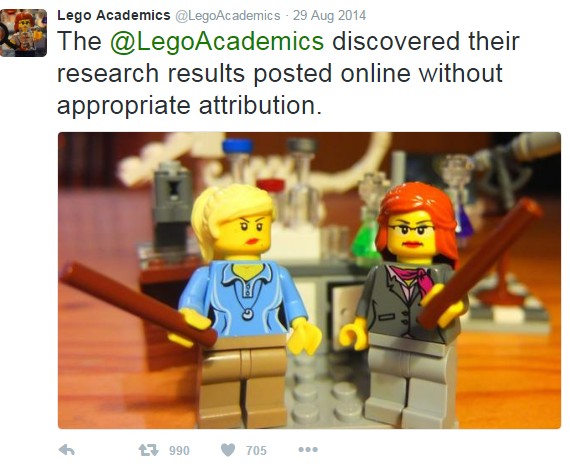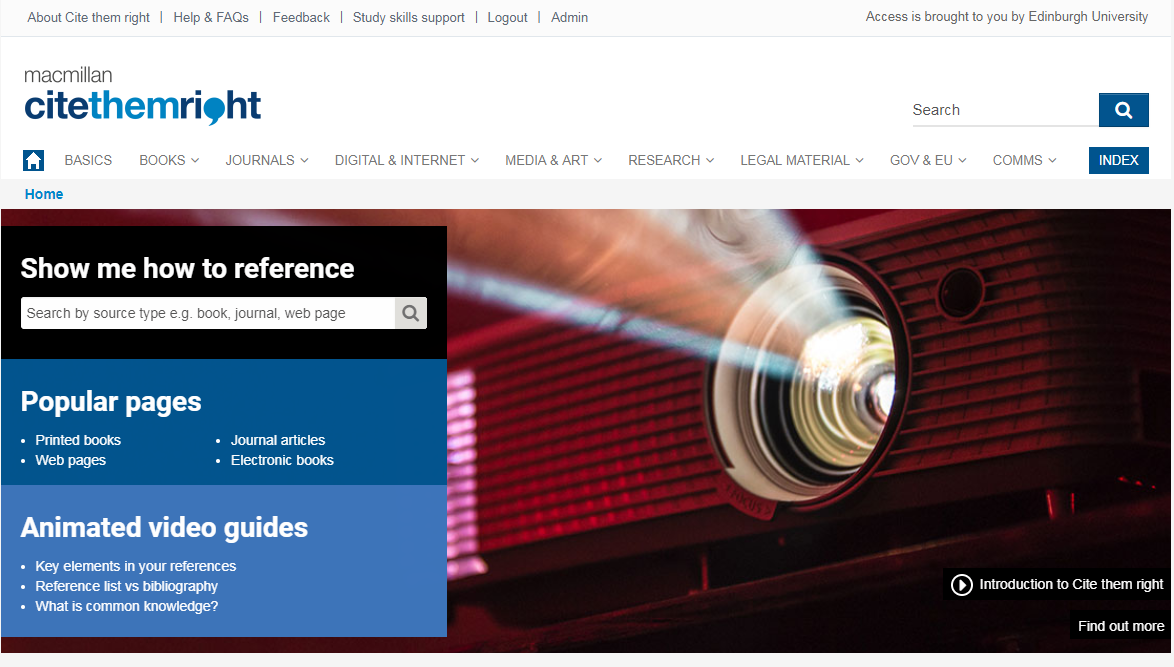Working on your assignment and unsure how to do references? Wondering what references, citations, endnotes, footnotes, etc., actually are? Don’t know your Harvard style from your Chicago style? We’ve got a few useful online resources that should help demystify the referencing process.
What is referencing?
Referencing is the process of acknowledging other people’s work when you have used it in your assignment or research. It allows the reader to locate your source material as quickly and easily as possible so that they can read these sources themselves and verify the validity of your arguments. Referencing provides the link between what you write and the evidence on which it is based.
(Cite Them Right Online, no date)
And this really explains why you must reference as well. Referencing demonstrates that you have spent time doing research and have used the material you have read to form your own opinions or arguments. You’re also writing your assignment for others, so referencing gives them all the details they need to find the material you have used in your research. And good referencing also means you are not trying to make it seem like someone else’s work is your own.
Bad referencing, however unintentional, can lead to you losing marks on your assignment or, at worst, you could be accused of plagiarism.
Plagiarism, n.
- The action or passing of taking someone else’s work, idea, etc., and passing it off as one’s own; literary theft.
- A particular idea, piece of writing, design, etc., which has been plagiarized; an act or product of plagiary.
(OED, 2016)
How can you avoid plagiarism? from CAHSS Webteam on Vimeo.
One of the first things to check is what referencing style your subject uses. In the School of Social and Political Science (SPS) the Harvard system is preferred by most subjects but do check as there are some exceptions. Your course handbook or Learn course should tell you this but if you are unsure speak to your Personal Tutor or Course Organiser. Or speak to your Peer Support.
Useful resources to help you get it right.
The Institute for Academic Development (IAD) at the University has some really useful guides and tips on Referencing and avoiding plagiarism. I’d recommend their Tips for accurate citing and referencing (pdf) as well as their short information sheets (pdfs) why is referencing essential?, using the work of others and what is plagiarism?
If you are looking for more general advice, including some examples, then take a look at Edinburgh University Student’s Association’s Read. Write. Cite.
Cite Them Right Online (UoE staff and students only)
For practical help take a look at Cite Them Right Online. As well as having some really useful guidance on the Basics of referencing, you can use Cite Them Right Online to find out how you specifically reference material you have used in your research and it gives examples of both the in-text citation and reference list.
You can search for the source type you wish to reference e.g. a book, journal article, web page, film, etc., or you can use the top menu to browse for the source type you are needing help with.
Cite Them Right Online primarily uses the Harvard style of referencing but also includes examples for APA, Vancouver, MLA, MHRA, OSCOLA and Chicago (note that the Library also has access to The Chicago Manual of Style Online).
Reference Managers
Why not use a reference management tool to help you save your references, organise your references and add your references into your written work?
Reference management tools (or reference managers):
- Instantly capture and download references from DiscoverEd and databases (and you can manually enter references as well).
- Have plug-ins you can download that allow you to insert citations and reference lists/bibliographies in Word documents in your chosen referencing style.
 As a student at the University you have free access to EndNote Online (sometimes referred to as EndNote basic or EndNote Web). You need to register to access it and you should register via Web of Science: instructions for registering (pdf). You also have access to EndNote desktop on all the Open Access Lab PCs and you can buy a personal copy for your own computer.
As a student at the University you have free access to EndNote Online (sometimes referred to as EndNote basic or EndNote Web). You need to register to access it and you should register via Web of Science: instructions for registering (pdf). You also have access to EndNote desktop on all the Open Access Lab PCs and you can buy a personal copy for your own computer.
The Digital Skills team run free courses on EndNote Online and EndNote desktop. You can find and book onto these via the Events Channel on MyEd. Courses are run in both semester one and two. Or why not check out Lynda.com for online training?
While EndNote is the supported reference manager at the University there are other tools out there that you may want to use instead, and some are also freely available e.g. Zotero, Mendeley, etc.
The End(Note?)
The above resources should hopefully give you some of the tools and know-how to help you become more confident in the art of referencing.
Caroline Stirling – Academic Support Librarian for Social and Political Science (SPS)
References:
Cite Them Right Online (no date) What is referencing and why is it important? Available at: https://www-citethemrightonline-com.ezproxy.is.ed.ac.uk/Basics/what-is-referencing (Accessed: 27 September 2017).
Lego Academics. (2014) [Twitter] 29 August. Available at https://twitter.com/LegoAcademics (Accessed: 14 October 2016).
OED. (2016) “plagiarism, n.” [Online]. Oxford University Press. Available: http://www.oed.com/view/Entry/144939?redirectedFrom=plagiarism [Accessed: 14 October 2016].


